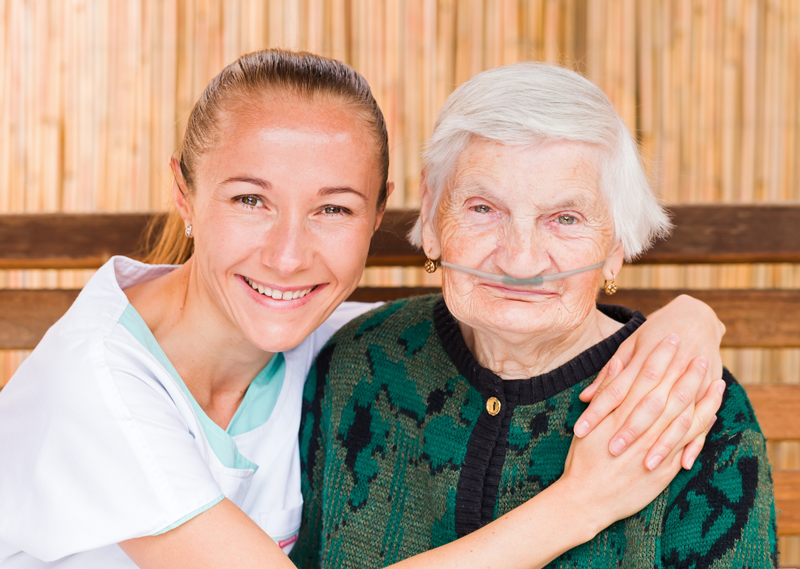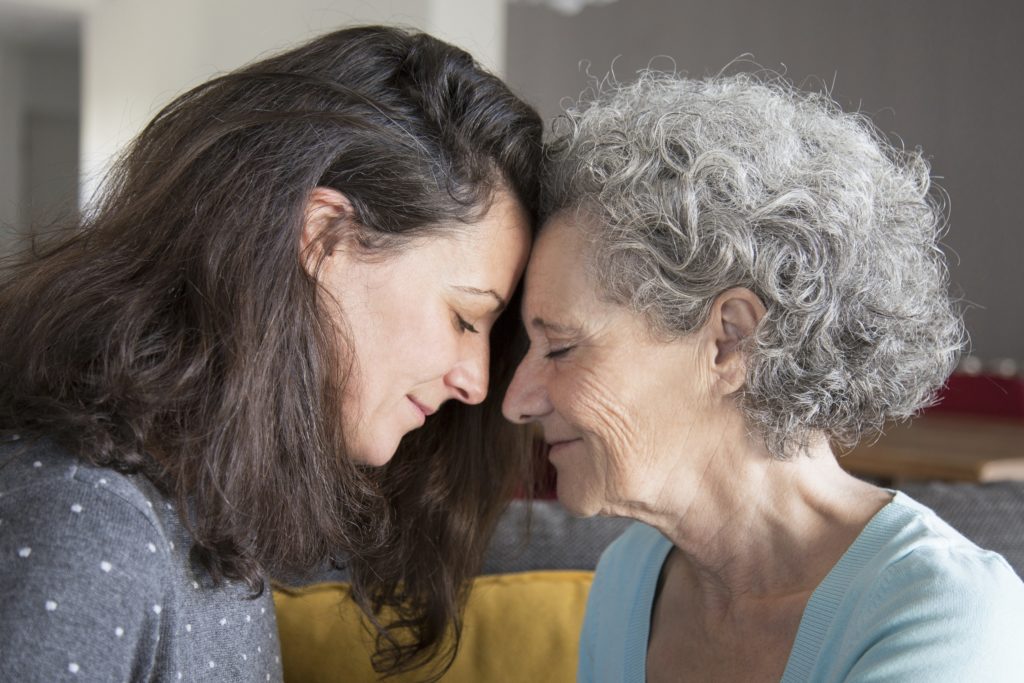It’s the time of year for resolutions, where we reflect on positive changes we want to focus on in the new year. One of the best New Year’s resolutions family caregivers can make is one focused on their own wellbeing – selfcare. Our blog is dedicated to helping you keep the promise of better selfcare in 2022.

Since many caregivers seldom consider their own needs, it’s important to realize that selfcare is not selfish. In fact, it’s vital. Think of it this way, when you pay real attention to your own wellbeing, you are considering the needs of your loved one. Practicing selfcare ensures you can be the best version of yourself for those who need you most. Without it, it’s like taking your car on a road trip while the gas is on “E”. So, let’s say it again – selfcare is far from selfish.
As you make the promise of better selfcare in 2022, key selfcare practices should focus on the mind, body and spirit. Here’s tips on how:
1. Mind
Our mental wellbeing affects every aspect of our lives and impacts our physical health. Practicing mental selfcare can bolster our energy, happiness, physical health and psychological well-being. These simple steps can help improve your mental wellbeing.
- Practice Gratitude. When caring for a seriously ill loved one, it’s hard to see beyond the burden of the disease. But focusing on what is beautiful, good and hopeful in your life can really help. Gratitude is powerful. Gratitude helps people feel more positive emotions, improves their health, and helps them deal better with adversity.
- Meditate. Meditation can provide immediate relief, no matter what the stress or anxiety. It can help you regain a sense of calm, peace and balance. And the benefits don’t stop once you stop meditating, they carry you through the day. Try and find time every day to meditate, here’s a great guide by the Mayo Clinic on different types of meditation.
- Reconnect with Nature. Researchers have long been touting the benefits of nature on mental wellbeing. Studies have shown being outdoors lowered levels of cortisol, a hormone that’s a marker for stress. Spending time in nature has long term mental and physical health benefits. You don’t have to hike the Andes, you can do simple adventures like visiting your local park, taking daily walks or spending time on your patio.
2. Body
Caring for your physical health is crucial for you to be able to care for someone else. Too often caregivers forgo their own health needs to care for their loved one. Maintaining your own physical wellbeing is protecting your ability to care for your loved one. These simple steps can improve your physical health.
- Don’t Forget Your Preventative Health. It’s important to make sure you get your preventative health screenings. If you missed these last year, this should be your number one resolution in 2022. This is a gift to yourself and your loved one.
- Get Some Sleep. Sleep plays an important role in your physical health. Sleep affects our immune system, appetite, breathing, blood pressure and cardiovascular health. Make a promise to yourself to take the time to get some good rest.
- Exercise. Exercising more is the top New Year’s resolution. No wonder, exercise is powerful medicine. Not only does it play a key role in health and disease prevention, it’s a great stress buster. When you exercise regularly you feel more powerful and have more energy to care for others. Make 2022 the year you get moving.
3. Spirit
Caring for your spirit is just as important as caring for your mind and body. It actually has a direct impact on our physical health and mental wellbeing. Caring for our spirit empowers us. These simple steps can help you uplift your spirit.
- Reconnect with Friends. When life overwhelms we often give up time with friends. But friends are important. Good friends bring connection and happiness into our lives. They enrich our days and make us feel part of something important. Don’t isolate yourself in 2022, give yourself the company of good friends.
- Build Your Nest. Environment matters. Your space impacts your mood. Creating a peaceful, beautiful space for yourself can lift your mood and happiness. An appealing space is inviting and offers a respite to unwind. Spend some time building your nest, it’s your safe harbor in a storm.
- Do Something Uplifting. What uplifts you? Many find joy in attending their favorite church, others find joy volunteering or helping a neighbor or friend. Find what uplifts you, it will nourish your soul.
A new year has long been the symbol of new chances and new beginnings. Making your selfcare a priority is not selfish, it’s the best resolution you can make, for you and your loved one. And remember, if you or your loved one needs an extra layer of support, we’re always a call away. Learn how ViaQuest Hospice cares for the mind, body, and spirit.




